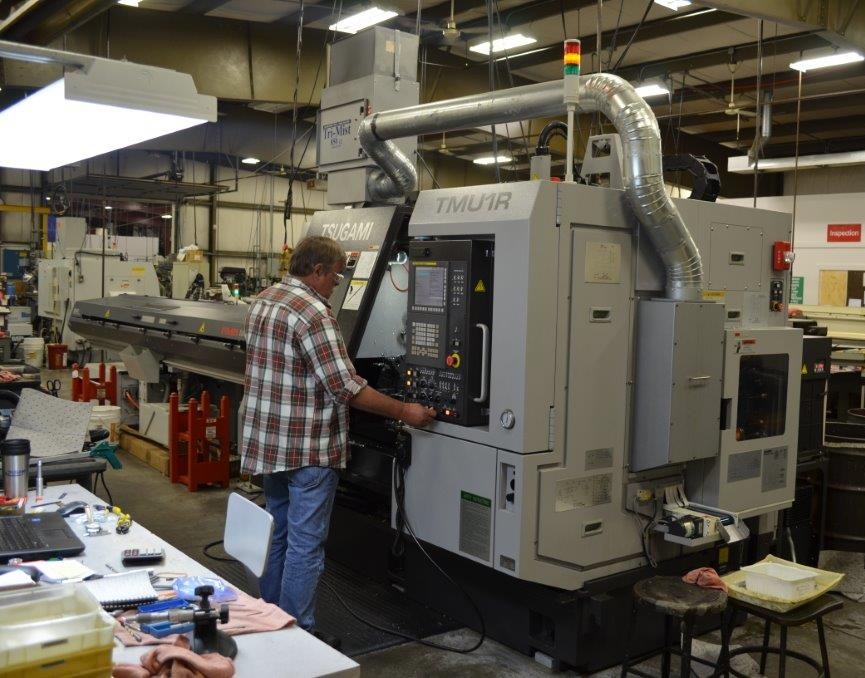Automation has been feared by the common workers in the U.S. since the start of the industrial revolution, where factory and mill workers lost jobs by the hundreds of thousands. Now, the remaining jobs that weren’t at risk before like driving, cooking, and even news reporting, have been painted as targets. According to new data, however, the inevitable future automation of several industries might actually create more jobs than it would destroy.
One of the most recent examples of companies outsourcing jobs to machines is Amazon Go, which is a concept that the retailer announced will heavily feature artificial intelligence, Futurism reports. Equipped with sensors and even computer vision, Amazon Go will basically allow customers to just grab stuff off the shelves and leave.
Now, the upside of this is the fact that customers will no longer have to deal with long lines at the cashier, which can be a drag during the holidays. Customers who don’t work in the service industry might even find this development worth celebrating. However, aside from the fact that it results in less personnel, there are also those who view the development as disruptive to an established industry.
On that note, The Wall Street Journal reports that automation can actually create jobs based on empirical evidence. Citing Automatic Teller Machines as examples, the publication notes how the cheaper costs allowed banks to open more branches in more locations. This, in turn, resulted in more jobs in the form of personnel.
The WSJ used the paper published by Ian Stewart, a UK economist at the Deloitte LLP firm. Stewart tracked census data in the U.K. and went as far back as the 1700s. He wanted to know the correlation between advancements in machinery and job growth and found that the two are actually quite compatible.
Then again, these results are seen in the long run. It is still a fact that thousands of workers are going to feel the brunt of the immediate impact of automation, which won’t likely be alleviated for years or decades.



 SpaceX Seeks FCC Approval for Massive Solar-Powered Satellite Network to Support AI Data Centers
SpaceX Seeks FCC Approval for Massive Solar-Powered Satellite Network to Support AI Data Centers  Global PC Makers Eye Chinese Memory Chip Suppliers Amid Ongoing Supply Crunch
Global PC Makers Eye Chinese Memory Chip Suppliers Amid Ongoing Supply Crunch  SoftBank Shares Slide After Arm Earnings Miss Fuels Tech Stock Sell-Off
SoftBank Shares Slide After Arm Earnings Miss Fuels Tech Stock Sell-Off  Nvidia Confirms Major OpenAI Investment Amid AI Funding Race
Nvidia Confirms Major OpenAI Investment Amid AI Funding Race  SpaceX Prioritizes Moon Mission Before Mars as Starship Development Accelerates
SpaceX Prioritizes Moon Mission Before Mars as Starship Development Accelerates  Tencent Shares Slide After WeChat Restricts YuanBao AI Promotional Links
Tencent Shares Slide After WeChat Restricts YuanBao AI Promotional Links  OpenAI Expands Enterprise AI Strategy With Major Hiring Push Ahead of New Business Offering
OpenAI Expands Enterprise AI Strategy With Major Hiring Push Ahead of New Business Offering  Amazon Stock Rebounds After Earnings as $200B Capex Plan Sparks AI Spending Debate
Amazon Stock Rebounds After Earnings as $200B Capex Plan Sparks AI Spending Debate  Nvidia Nears $20 Billion OpenAI Investment as AI Funding Race Intensifies
Nvidia Nears $20 Billion OpenAI Investment as AI Funding Race Intensifies  Palantir Stock Jumps After Strong Q4 Earnings Beat and Upbeat 2026 Revenue Forecast
Palantir Stock Jumps After Strong Q4 Earnings Beat and Upbeat 2026 Revenue Forecast  AMD Shares Slide Despite Earnings Beat as Cautious Revenue Outlook Weighs on Stock
AMD Shares Slide Despite Earnings Beat as Cautious Revenue Outlook Weighs on Stock  Sony Q3 Profit Jumps on Gaming and Image Sensors, Full-Year Outlook Raised
Sony Q3 Profit Jumps on Gaming and Image Sensors, Full-Year Outlook Raised  Elon Musk’s Empire: SpaceX, Tesla, and xAI Merger Talks Spark Investor Debate
Elon Musk’s Empire: SpaceX, Tesla, and xAI Merger Talks Spark Investor Debate  SoftBank and Intel Partner to Develop Next-Generation Memory Chips for AI Data Centers
SoftBank and Intel Partner to Develop Next-Generation Memory Chips for AI Data Centers  Nvidia, ByteDance, and the U.S.-China AI Chip Standoff Over H200 Exports
Nvidia, ByteDance, and the U.S.-China AI Chip Standoff Over H200 Exports  Alphabet’s Massive AI Spending Surge Signals Confidence in Google’s Growth Engine
Alphabet’s Massive AI Spending Surge Signals Confidence in Google’s Growth Engine 




























